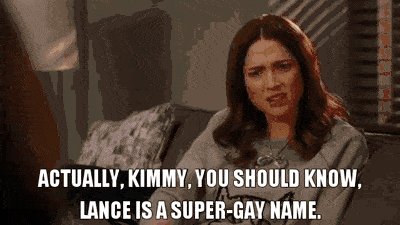nancy echevarria / d4 / fin
Jul 12, 2019 18:31:32 GMT -5
Post by goat on Jul 12, 2019 18:31:32 GMT -5
nancy echevarria

16
she/they
district 4

16
she/they
district 4
“Have you been feeling any better?”
She picks at the frayed edges of her cardigan. The heavy fabric is making her sweat, but it’s better than revealing what lies on the skin underneath. She crosses her legs, uncrosses them, crosses her arms instead. Nervous tics that can’t be stopped by the will of her mind. The doctor watches, noting how she shifts. Nancy hates the feeling of eyes on her. She can’t make eye contact. She just shrugs. “I’m fine.”
“That doesn’t answer my question.”
“But it does, doesn’t it?” She leans forward in her seat, annoyance bubbling in her chest. Nobody listens to her. She’s lying, sure, but she’s tired of people trying to dig into her brain. She wants somebody to listen to what’s coming out of her mouth. Just believe what I’m telling you and we can all move on.
“I asked if you were feeling any better. Not how you were feeling.”
“Specifics.”
She’s not used to seeing a doctor, and she thinks she doesn’t like it. She never had any reason to see one before February. It wasn’t like she was happy, but she wasn’t unhappy either. Her life had been fine. There was the general oppression of life under the Capitol, but she felt it less than people in lower districts. Once she got over her fear of the Reaping every year, she moved on.
Her parents had been Career trainers. They woke up every day at an ungodly hour to get ready to prepare children to murder other children. Nancy had wanted no part of it. Her parents were disappointed, sure, but her older sister had been more than willing to fill her shoes. Cynthia had been just a couple years older. She relished in her training like it was all she had. Their parents gushed over her, how quick she was on her feet, how proficient she was with a blade.
The doctor scribbles something down on her notepad. Nancy watches the pen glide across the paper, wondering what the words say. Obstinate. Rebellious. Resistant to treatment. It’s nothing she hasn’t heard before. I’m not resistant, she wants to say, I just don’t want to be here. I would feel better if I was at home, alone, in my bed, in the dark.
It’s weird for her to refer to the orphanage as home. She still misses her home, with the windows always open and the sea-breeze wafting in, the stairs that creaked and the dusty coat rack. She hasn’t been back since she left, but she keeps finding herself walking dangerously close to the street it’s on. She’ll hover by the mouth of it, or peer down, but she’ll never walk close. She can’t bring herself to do it. She’s scared she’ll walk by and see a new family inside, another set of parents and daughters with their own issues that won’t be addressed until it’s too late.
“You had to come in today because you’re having an issue at the orphanage.” Nancy’s head shoots up and she stares the doctor in the face for the first time. The doctor smiles, pleased with herself. “I was told ahead of time. Why don’t we talk about it?”
Nancy sighs, rolling her eyes and throwing herself back in her seat. “Fine. Whatever.” She blows out a puff of air. “I think one of the women who works there doesn’t trust me. She always looks at me weird and won’t talk to me. She won’t even be alone with me in the same room. I know why. I’m not stupid. She’s worried I’m going to do something like my sister did. She thinks I’m going to hurt her or one of the other kids.”
She pulls her sleeves over her hands and presses them to her eyes. She isn’t going to cry, absolutely not. She hasn’t cried since February. She didn’t cry when she came home from school to find an empty house, not when a Peacekeeper arrived hours later to tell her there’d been an incident at the training center, not when he told her her family was dead. She only cried when she found out what had happened. Her sister, freshly aged out of the Reapings, had put a knife into both of their parents before jamming it into her own chest. And then she didn’t cry again.
There was no way to make sense of the situation. It was terrible, and then it was over, and Nancy was left in the aftermath.
“I know you, Nancy,” the doctor says. “You aren’t capable of something like that.”
“Everybody is capable of everything,” Nancy says.
“Not always.”
But she worries.
She picks at the frayed edges of her cardigan. The heavy fabric is making her sweat, but it’s better than revealing what lies on the skin underneath. She crosses her legs, uncrosses them, crosses her arms instead. Nervous tics that can’t be stopped by the will of her mind. The doctor watches, noting how she shifts. Nancy hates the feeling of eyes on her. She can’t make eye contact. She just shrugs. “I’m fine.”
“That doesn’t answer my question.”
“But it does, doesn’t it?” She leans forward in her seat, annoyance bubbling in her chest. Nobody listens to her. She’s lying, sure, but she’s tired of people trying to dig into her brain. She wants somebody to listen to what’s coming out of her mouth. Just believe what I’m telling you and we can all move on.
“I asked if you were feeling any better. Not how you were feeling.”
“Specifics.”
She’s not used to seeing a doctor, and she thinks she doesn’t like it. She never had any reason to see one before February. It wasn’t like she was happy, but she wasn’t unhappy either. Her life had been fine. There was the general oppression of life under the Capitol, but she felt it less than people in lower districts. Once she got over her fear of the Reaping every year, she moved on.
Her parents had been Career trainers. They woke up every day at an ungodly hour to get ready to prepare children to murder other children. Nancy had wanted no part of it. Her parents were disappointed, sure, but her older sister had been more than willing to fill her shoes. Cynthia had been just a couple years older. She relished in her training like it was all she had. Their parents gushed over her, how quick she was on her feet, how proficient she was with a blade.
The doctor scribbles something down on her notepad. Nancy watches the pen glide across the paper, wondering what the words say. Obstinate. Rebellious. Resistant to treatment. It’s nothing she hasn’t heard before. I’m not resistant, she wants to say, I just don’t want to be here. I would feel better if I was at home, alone, in my bed, in the dark.
It’s weird for her to refer to the orphanage as home. She still misses her home, with the windows always open and the sea-breeze wafting in, the stairs that creaked and the dusty coat rack. She hasn’t been back since she left, but she keeps finding herself walking dangerously close to the street it’s on. She’ll hover by the mouth of it, or peer down, but she’ll never walk close. She can’t bring herself to do it. She’s scared she’ll walk by and see a new family inside, another set of parents and daughters with their own issues that won’t be addressed until it’s too late.
“You had to come in today because you’re having an issue at the orphanage.” Nancy’s head shoots up and she stares the doctor in the face for the first time. The doctor smiles, pleased with herself. “I was told ahead of time. Why don’t we talk about it?”
Nancy sighs, rolling her eyes and throwing herself back in her seat. “Fine. Whatever.” She blows out a puff of air. “I think one of the women who works there doesn’t trust me. She always looks at me weird and won’t talk to me. She won’t even be alone with me in the same room. I know why. I’m not stupid. She’s worried I’m going to do something like my sister did. She thinks I’m going to hurt her or one of the other kids.”
She pulls her sleeves over her hands and presses them to her eyes. She isn’t going to cry, absolutely not. She hasn’t cried since February. She didn’t cry when she came home from school to find an empty house, not when a Peacekeeper arrived hours later to tell her there’d been an incident at the training center, not when he told her her family was dead. She only cried when she found out what had happened. Her sister, freshly aged out of the Reapings, had put a knife into both of their parents before jamming it into her own chest. And then she didn’t cry again.
There was no way to make sense of the situation. It was terrible, and then it was over, and Nancy was left in the aftermath.
“I know you, Nancy,” the doctor says. “You aren’t capable of something like that.”
“Everybody is capable of everything,” Nancy says.
“Not always.”
But she worries.



































































